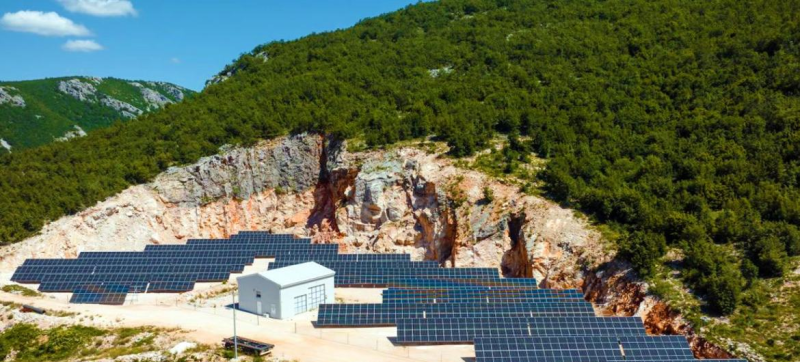- Passenger bus in northern India catches fire: 20 people burn to death |
- Voting start in Ctg Varsity Central Students Union elections |
- Death toll in Mirpur factory, chemical godown fire rises to 16 |
- Humanitarians Urge Donors as Global Aid Remains Severely Short |
- Sami’s five-for 33 seals Afghanistan’s 200-run rout of Bangladesh |
Clean Energy Revolution Surges, But Global Goals Lag Behind

A 300-kilowatt solar power plant in Bosnia and Herzegovina has provided renewable energy since early 2023.
A new report released on Tuesday warns that the world is falling behind on its clean energy goals, prompting UN chief António Guterres to call once more for a ramped-up transition to a net-zero global economy.
In recent years, one of the bright spots amid gloomy climate predictions has come from the International Renewable Energy Agency (IRENA) — an Abu Dhabi-based intergovernmental body — which has consistently highlighted the plummeting costs and rising efficiency of clean energy sources, such as solar and wind power.
On Tuesday, IRENA launched its latest progress report, which reiterated the impressive rise of renewables. In 2024, a record-breaking 582 Gigawatts of renewable energy capacity was added, but the report warned this is still far below the annual increase needed to reduce reliance on fossil fuels, which are accelerating global warming.
“The clean energy revolution is unstoppable,” said Mr Guterres in response to the study.
“Renewables are being deployed faster and cheaper than fossil fuels — driving growth, jobs, and affordable power. But the window to keep the 1.5°C limit within reach is rapidly closing. We must step up, scale up, and speed up the just energy transition — for everyone, everywhere.”
At the COP28 UN climate conference, governments committed to producing 11.2 Terawatts of energy from renewable sources by 2030.
While the 2024 figure is impressive, it remains far short of the 1,122 GW of capacity that needs to be added each year to meet this target.
The report calls on the world’s richest countries to take the lead in phasing out polluting energy sources such as coal and oil, and to raise their share of renewables to around 20 per cent of global capacity by the end of the decade.
A major increase in investment is urgently needed, the report states, to fund upgrades to electricity grids, supply chains, and clean-tech manufacturing for solar, wind, batteries, and hydrogen.

